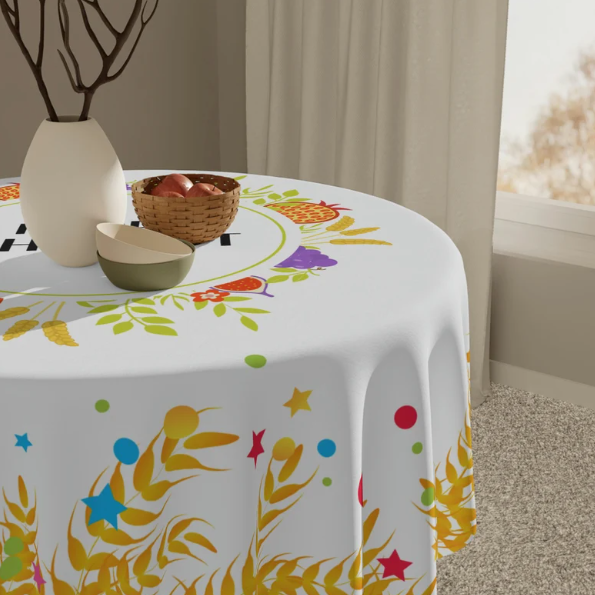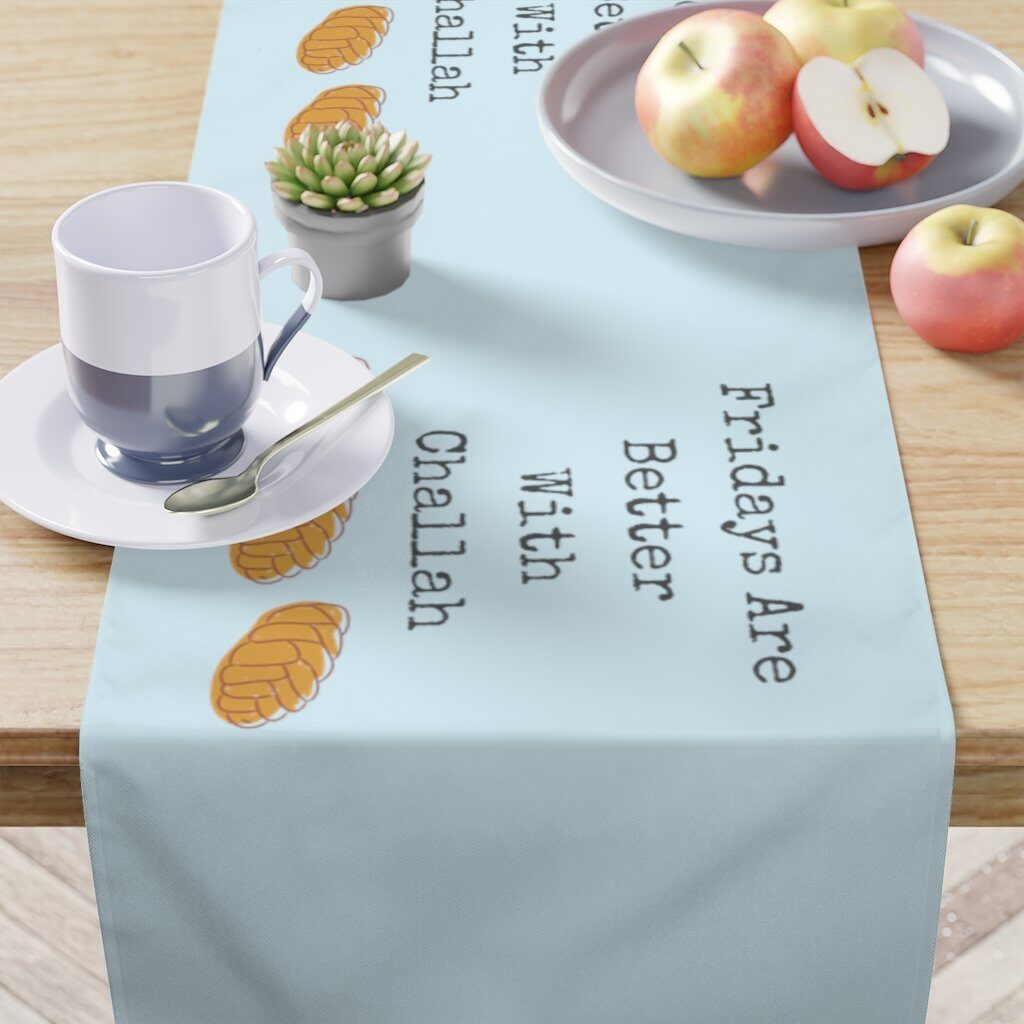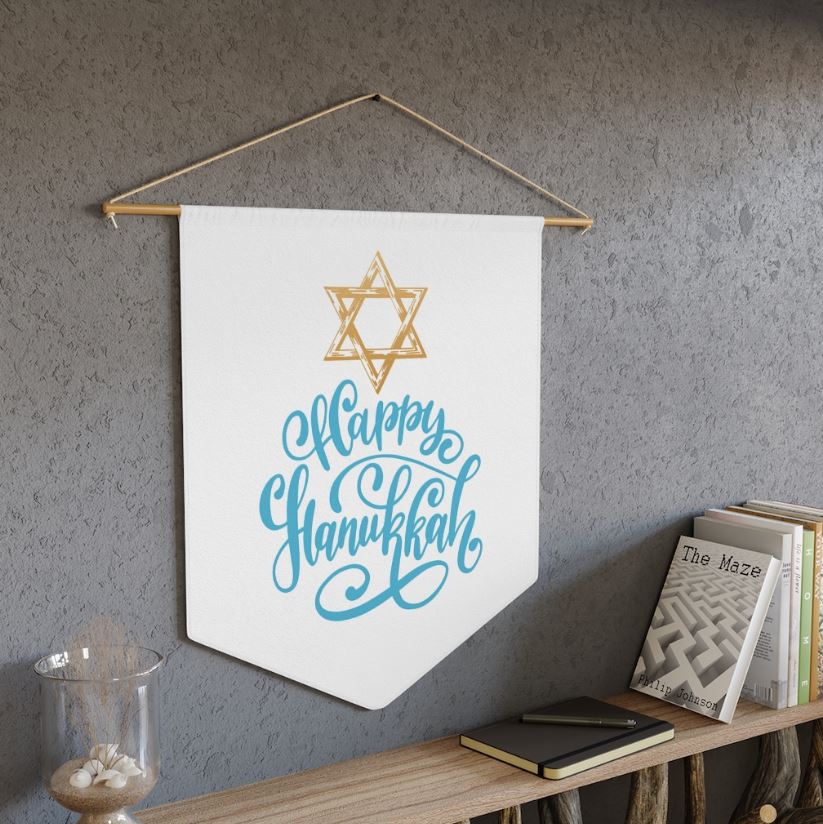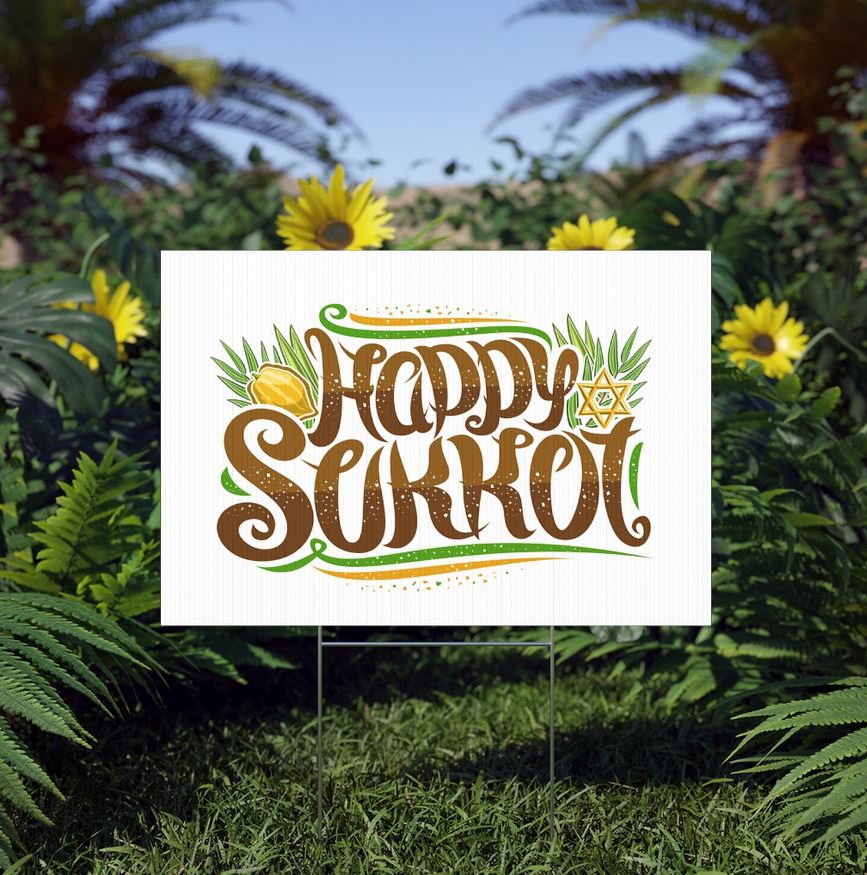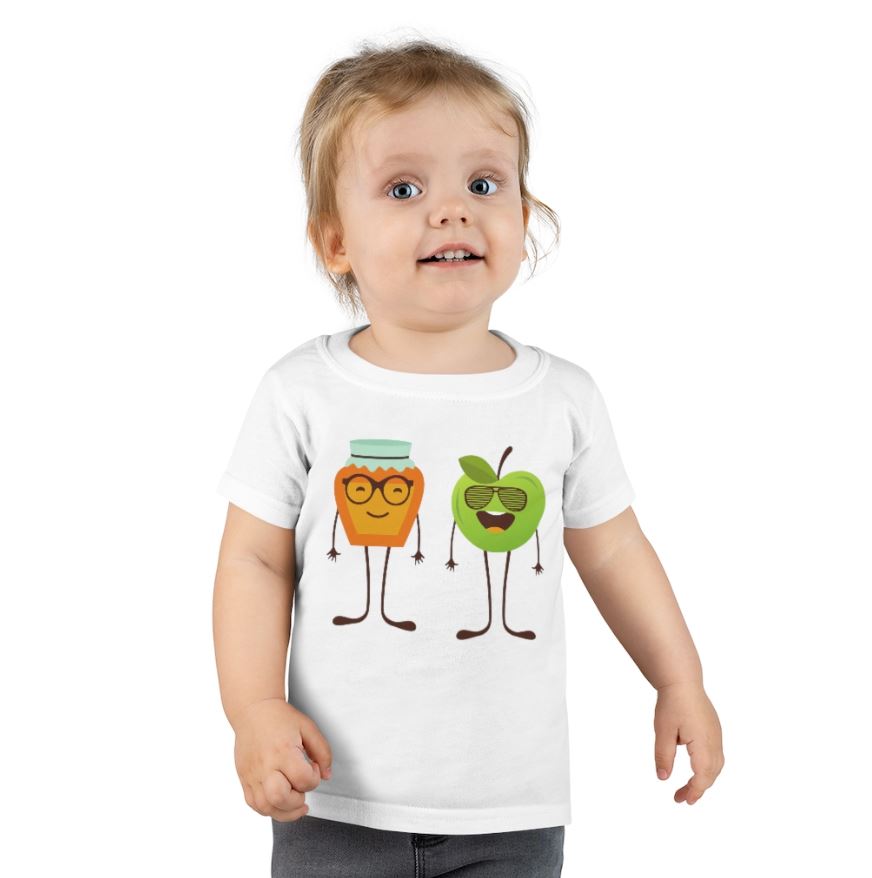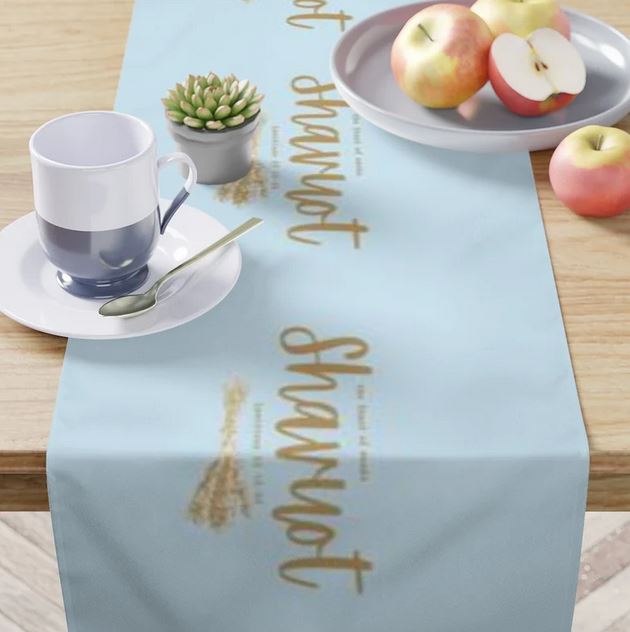Here are some key Shavuot vocabulary words:
Shavuot – the holiday commemorating the giving of the Torah to the Jewish people at Mount Sinai.
Torah – the Jewish holy scripture, which includes the first five books of the Hebrew Bible.
Mount Sinai – the mountain in the Sinai desert where Moses received the Ten Commandments and the Torah from God.
Aseret HaDibrot – the Ten Commandments.
Chag Matan Torah – “the holiday of the giving of the Torah” in Hebrew.
Tikkun Leil Shavuot – a custom of staying up all night to study Torah and other Jewish texts on the night of Shavuot.
Dairy meal – a meal containing only dairy products, traditionally eaten on the first day of Shavuot.
Cheesecake – a popular dessert made of a sweetened cream cheese filling on top of a cookie or graham cracker crust, often eaten on Shavuot.
Ruth – a biblical figure whose story is read on Shavuot. She was a Moabite woman who converted to Judaism and became an ancestor of King David.
Bikkurim – the first fruits of the harvest, which were brought as an offering to the Temple in Jerusalem on Shavuot.
Want to understand What is Shavuot? Read our page on the basics of Shavuot and some of the most asked questions about this holiday. What is Shavuot and most asked questions

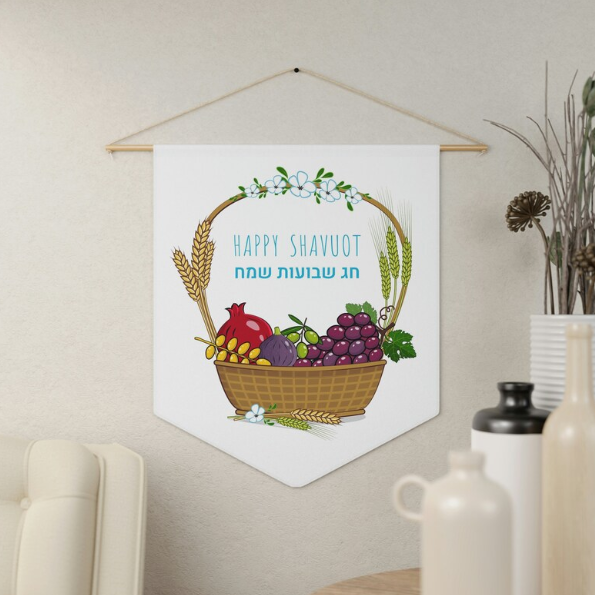

Yes, Shavuot is considered a Yom Tov (a festival) in the Jewish calendar. It is one of the three pilgrimage festivals, along with Passover and Sukkot, on which Jewish people historically traveled to the Temple in Jerusalem to bring offerings. On Shavuot, there is a prohibition against doing work, similar to the Sabbath, and special holiday prayers are recited.
What month is Shavuot?
Shavuot is the Hebrew name for the holiday that occurs on the 6th of the Jewish month of Sivan. In the Gregorian calendar, which is the standard calendar used in the Western world, Shavuot usually falls in May or June. The exact date of the holiday varies from year to year because the Jewish calendar is a lunar calendar, which means it is based on the cycles of the moon.

Are Shavuot and Pentecost the same?
Shavuot and Pentecost have some similarities, but they are not exactly the same.
Shavuot is a Jewish holiday that commemorates the giving of the Torah to Moses on Mount Sinai. It is celebrated seven weeks (or 50 days) after Passover and is also known as the Festival of Weeks. Shavuot is one of the three pilgrimage festivals in the Jewish calendar, along with Passover and Sukkot.
Pentecost, on the other hand, is a Christian holiday that commemorates the descent of the Holy Spirit upon the apostles and other followers of Jesus Christ, as recorded in the New Testament book of Acts. It is celebrated 50 days after Easter and is also known as the Feast of Weeks in some Christian traditions.
Both holidays are linked to the idea of counting seven weeks (or 50 days) after a significant event and celebrating the culmination of that period. However, they have different religious and cultural contexts and are observed by different religious groups.
What are Shavuot work restrictions?
Similar to Shabbat, there are restrictions on work during the holiday of Shavuot. The specific work restrictions vary among different Jewish communities and individuals, but here are some general guidelines:
No work should be done that involves creating something new or producing something that did not exist before, such as planting, building, sewing, or writing.
No business transactions should take place, including buying and selling.
No cooking or baking is permitted on the holiday. However, food may be warmed up if it was cooked before the holiday and kept warm

4. No handling of money or using electronic devices is allowed.
5. No driving is permitted, although some communities may allow walking or using public transportation within an eruv (a halachic enclosure that creates a symbolic private domain).
Whats the difference between Shavuot and Sukkot?
Shavuot and Sukkot are two different holidays in the Jewish calendar, and they have different meanings and customs.
Shavuot is a one-day holiday that celebrates the giving of the Torah at Mount Sinai. It is also called the Feast of Weeks, because it occurs seven weeks (49 days) after Passover. During Shavuot, Jewish people traditionally study Torah, and eat dairy foods and special holiday meals.
Sukkot, on the other hand, is a seven-day holiday that celebrates the harvest season and commemorates the 40 years that the Jewish people wandered in the desert after leaving Egypt. During Sukkot, Jewish people build and decorate temporary outdoor structures called sukkot, and eat meals in them. The holiday is also known as the Feast of Tabernacles or the Feast of Booths.
While both Shavuot and Sukkot are considered pilgrimage festivals, there are some key differences in their observance and customs. Shavuot is a much shorter holiday, and does not require any specific physical preparations like building a sukkah. Additionally, the foods associated with the holidays are different, with dairy foods being traditional for Shavuot and seasonal fruits and vegetables being central to Sukkot cuisine.
Go HERE to learn more about Sukkot and see our beautiful Sukkot Range
FREE JEWISH WALL CALENDAR 2023/5783
The Kosher Hub has designed a beautifully iconic Jewish Calendar with all the important holidays for this coming year that you can download for FREE.

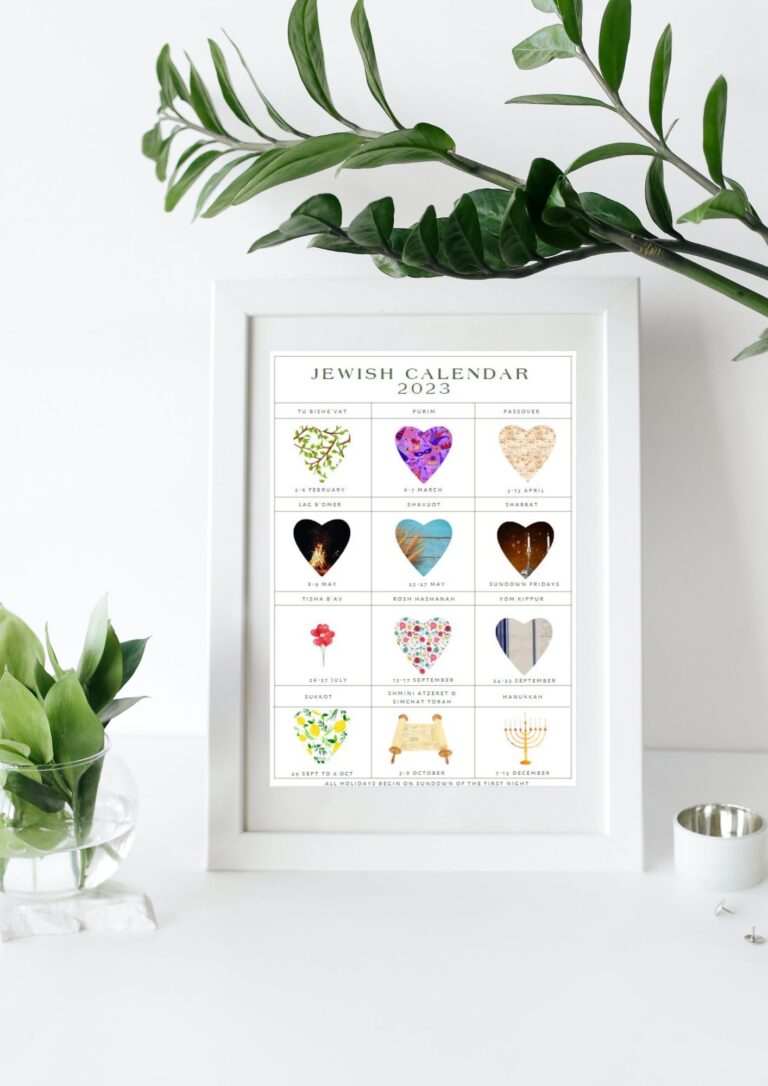
What is a Shavuot song?
From the research we have done this is the top Shavuot song on You tube with 221000 views
Check out Kerry Bar Cohens Channel HERE
What are the Shavuot Symbols?
There are several symbols associated with Shavuot:
The Ten Commandments: According to Jewish tradition, the Israelites received the Ten Commandments on Mount Sinai on Shavuot. Therefore, the Ten Commandments are considered to be a symbol of the holiday.
Wheat and other grains: Shavuot is also known as the “Festival of the Harvest,” as it marks the beginning of the wheat harvest in Israel. Therefore, wheat and other grains are often used as symbols of the holiday.
Dairy foods: It is customary to eat dairy foods on Shavuot, as it is said that the Torah is like milk and honey to the Jewish people. Therefore, dairy products like cheesecake, blintzes, and cheese-filled pastries are often served on the holiday.
Flowers and greenery: In some Jewish communities, it is customary to decorate synagogues and homes with flowers and greenery on Shavuot, as a symbol of the beauty and bounty of the harvest season.
Torah Scrolls: Shavuot is also a holiday celebrating the giving of the Torah, so Torah scrolls are often brought out and read in synagogues during the holiday.
3 Main Shavuot Prayers
The blessing over dairy food and cheesecake at Shavuot is:
Baruch atah Adonai, Eloheinu Melech haolam, shehakol nihyeh bidvaro.
Translation: Blessed are You, Adonai our God, Sovereign of the universe, by whose word all things came to be.
In Hebrew: בָּרוּךְ אַתָּה ה’ אֱלֹהֵינוּ מֶלֶךְ הָעוֹלָם, שֶׁהַכֹּל נִהְיָה בִּדְבָרוֹ.
Shehecheyanu Blessing:
Baruch atah Adonai, Eloheinu Melech haolam, shehecheyanu v’kiy’manu v’higianu lazman hazeh.
Translation: Blessed are You, Adonai our God, Sovereign of the universe, who has granted us life, sustained us, and enabled us to reach this moment.
In Hebrew: בָּרוּךְ אַתָּה ה’ אֱלֹהֵינוּ מֶלֶךְ הָעוֹלָם, שֶׁהֶחֱיָנוּ וְקִיְּמָנוּ וְהִגִּיעָנוּ לַזְּמַן הַזֶּה.
Candle Lighting Blessing:
Bah-rookh ah-tah ah-doh-noi eh-loh-hay-noo meh-lekh hah-oh-lahm ah-sher ki-deh-shah-noo beh-mitz-voh-tahv veh-tzee-vah-noo leh-hahd-lik nehr shehl yohm tohv.
בָּרוּךְ אַתָּה אֲ-דֹנָי- אֱ-לֹהֵינוּ מֶלֶךְ הָעוֹלָם, אֲשֶׁר קִדְּשָׁנוּ בְּמִצְוֹתָיו, וְצִוָּנוּ לְהַדְלִיק נֵר שֶׁל יוֹם טוֹב
Translation: Blessed are You, L‑rd our G‑d, King of the universe, who has sanctified us with His commandments, and commanded us to kindle the holiday light.







